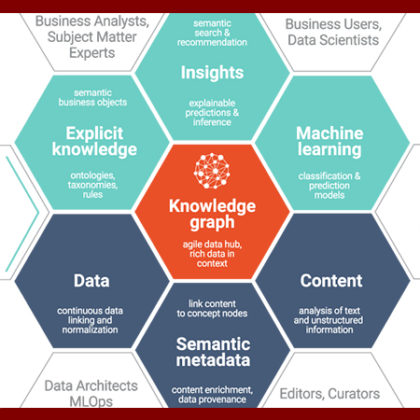
Description
Focus Area: Machine Learning / Artificial Intelligence & Explainable AI
Estimated Budget Range: TBD
Submission Deadline: Thursday, December 31st, 2026 at 00:00, ET

SUMMARY
The potential to apply blockchain to knowledge graph solutions opens the doors to new and novel ways of advancing developments in robust AI and machine learning techniques. A decentralized blockchain knowledge graph operating system that facilitates the connection, collaboration and creation; of new shared knowledge resources in a safe and secure environment is required to support today’s distributed and multi-disciplinary teams.
Patriot Labs is interested in exploring operating systems for knowledge graphs that leverage blockchain. The preferred architecture will employ the latest security standards, computing innovations, blockchain protocols, and SOTA ML and AI techniques, which dramatically expand their ability to generate new knowledge from the original data, as well as from new data that may be ingested into existing knowledge graphs.
For purposes of this CFI, solutions may incorporate technology that supports semantically linked data (i.e., ontologies), enhanced reasoning and logical rules engine. This digital knowledge must demonstrate the relationships and interdependencies between various concepts that are key drivers of decisions within targeted use cases. These solutions should provide resource applications for the efficient capture of subject matter expertise, enabling users to quickly build data and computational models that illustrate the dynamic relationships between disparate data sources. Resulting knowledge models must be machine readable, facilitate mathematical representations, and support the integration of data across silos. AI/ML platforms should benefit from computational models that mathematically encode human expertise, trained by subject-matter experts (i.e., identifying classifiers, similarities, predictors, and simulations).
Approaches could include innovative approaches to separating the structure of data from its content, providing ‘fluidity of modeling’ within a graph and making it possible to re-purpose any data into a relevant structure. Special consideration given to solutions that enable groups across an organization to leverage and build upon the initial knowledge graph to rapidly develop models for iterative collaboration. Ideally, models created by one group can be reused and build upon by other groups, enabling enterprises to build thousands of models at scale. As more knowledge models are created, the time-to-value is accelerated.

